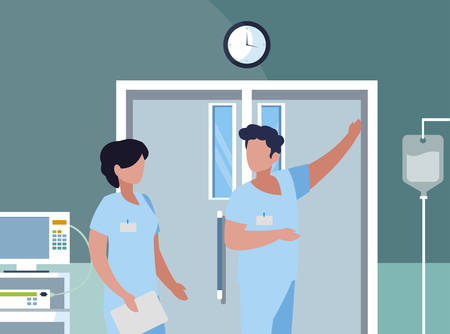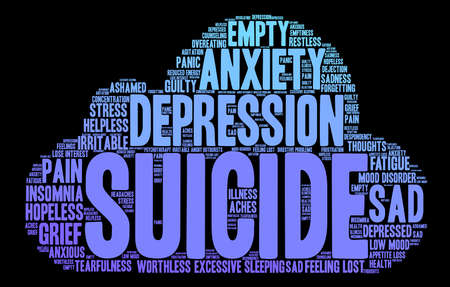Introduction to Narcolepsy
Narcolepsy is a long-term neurological condition that affects the way the brain regulates sleep and wakefulness. For many people across the UK, living with narcolepsy means navigating unexpected bouts of daytime sleepiness, sudden muscle weakness, and a constant balancing act to maintain daily routines. While it is not as widely recognised as other health conditions, narcolepsy can have a significant impact on one’s quality of life, influencing work, studies, relationships, and even leisure activities. Raising awareness about narcolepsy is essential, not only for those who live with it but also for families, employers, and communities. By understanding what narcolepsy involves and how it shapes everyday experiences, we can foster greater empathy and provide better support for individuals across Britain facing this often misunderstood condition.
Key Symptoms and Early Signs
Narcolepsy can be a perplexing condition, often mistaken for other health issues in its early stages. Recognising the hallmark symptoms and subtle early signs is crucial, especially within the UK where awareness remains limited. Below, we explore how these symptoms may present differently from person to person, and what to watch out for if you suspect narcolepsy.
Common Symptoms of Narcolepsy
Narcolepsy is primarily characterised by excessive daytime sleepiness (EDS), but it can also manifest through a range of other symptoms. The table below highlights key symptoms, their typical presentations, and notes on individual variation:
| Symptom | Typical Presentation | Individual Variation |
|---|---|---|
| Excessive Daytime Sleepiness (EDS) | Overwhelming urge to sleep during the day, even after adequate rest at night | Can range from mild drowsiness to sudden sleep attacks that disrupt daily activities |
| Cataplexy | Sudden loss of muscle tone triggered by emotions such as laughter or surprise | May be subtle (slurred speech, drooping eyelids) or more severe (collapse) |
| Sleep Paralysis | Temporary inability to move or speak when falling asleep or waking up | Episodes can last seconds to minutes; not everyone with narcolepsy experiences this |
| Hallucinations | Vivid dream-like experiences upon falling asleep or waking up (hypnagogic/hypnopompic) | Can be visual, auditory, or tactile; often distressing but not dangerous |
| Disturbed Night-time Sleep | Frequent awakenings during the night, fragmented sleep patterns | Might be mistaken for insomnia or restless leg syndrome |
Recognising Early Warning Signs in the UK Context
The early signs of narcolepsy are often subtle and easily overlooked, particularly in British culture where tiredness is sometimes brushed off as a normal part of busy modern life. Here are some early indicators that shouldnt be ignored:
- Persistent fatigue despite regular sleep schedules and good sleep hygiene
- Lapses in concentration at work or school, leading to forgetfulness or minor accidents
- Unexplained episodes of muscle weakness during moments of laughter or excitement—sometimes dismissed as clumsiness
- Struggling to stay awake during passive activities, such as watching television or reading on public transport—a common scenario in the UK commute culture
- Experiencing vivid dreams or hallucinations that blur the line between waking and sleeping states
A Gentle Reminder: When to Seek Support
If you or someone close to you displays several of these symptoms regularly, its worth having an open conversation with your GP. Early diagnosis and tailored care can significantly improve day-to-day wellbeing and help maintain a balanced lifestyle amidst the UKs fast-paced rhythm.

3. Diagnosis Process in the UK
Navigating a potential narcolepsy diagnosis in the UK can feel daunting, but rest assured, the NHS provides clear pathways for support and care. If you suspect you may have narcolepsy, your first step should be booking an appointment with your local GP. It’s helpful to keep a sleep diary for a few weeks beforehand, noting down any daytime sleepiness, cataplexy episodes, or unusual sleep behaviours to share with your doctor.
During your visit, your GP will take time to listen to your concerns and ask about your medical history and symptoms. Don’t worry if you find it hard to describe how you feel – GPs are used to hearing about all sorts of sleep issues and will guide you gently through the process. They may also ask questions about your lifestyle and mental health, as these factors can sometimes influence sleep.
If narcolepsy is suspected, your GP will likely refer you to a specialist sleep clinic for further assessment. This usually involves overnight monitoring (polysomnography) followed by a Multiple Sleep Latency Test (MSLT), which measures how quickly you fall asleep during the day. These tests help doctors confirm whether symptoms fit the criteria for narcolepsy or if another sleep disorder might be at play.
The NHS aims to make this journey as supportive as possible, so don’t hesitate to ask questions or express any worries throughout. You might experience some waiting times for specialist appointments, which is normal within the NHS system. In the meantime, maintaining a regular sleep schedule and practising good sleep hygiene can help manage symptoms. Remember, early diagnosis not only brings peace of mind but also opens doors to effective treatment and ongoing support in daily life.
4. Treatment Options and NHS Support
Narcolepsy is a lifelong condition, but with proper treatment and ongoing support, many people in the UK are able to manage their symptoms effectively and lead fulfilling lives. The NHS offers a range of options that focus on both medical intervention and holistic care, ensuring individuals have access to the resources they need.
Medication and Medical Treatments
There are several medications commonly prescribed to help control narcolepsy symptoms. These are usually initiated by a neurologist or sleep specialist within the NHS. Here’s a quick overview:
| Medication Type | Main Purpose | Common Examples (UK) |
|---|---|---|
| Stimulants | Help reduce excessive daytime sleepiness | Modafinil, Methylphenidate |
| Sodium Oxybate | Improves night-time sleep and reduces cataplexy | Sodium Oxybate (Xyrem) |
| Antidepressants | Control cataplexy, hallucinations, and sleep paralysis | Venlafaxine, Clomipramine |
Lifestyle Adjustments for Better Symptom Management
The NHS also recommends lifestyle modifications alongside medication. These adjustments can make a notable difference in daily wellbeing:
- Scheduled Naps: Short, regular naps throughout the day can help manage sleepiness.
- Consistent Sleep Routine: Going to bed and waking up at the same time each day supports better sleep quality.
- Avoiding Triggers: Limiting caffeine, alcohol, and heavy meals before bedtime can minimise disruptions.
- Stress Reduction: Mindfulness practices or gentle exercise such as yoga may improve overall mood and alertness.
- Workplace Adjustments: Under the Equality Act 2010, UK employees with narcolepsy may request reasonable adjustments from their employer, such as flexible hours or a quiet rest space.
NHS Support Services
The UK healthcare system provides comprehensive support for people living with narcolepsy. After diagnosis, you may be referred to a multidisciplinary team that includes neurologists, sleep specialists, and sometimes mental health professionals. Annual reviews and regular check-ups help tailor treatment plans as your needs change. Additionally, patient support groups—such as Narcolepsy UK—offer peer advice, community events, and practical guidance for navigating everyday life with narcolepsy.
5. Living Well With Narcolepsy
Finding Balance in Everyday British Life
Navigating narcolepsy can be challenging, but with thoughtful adjustments and a supportive environment, many people in the UK manage to lead fulfilling lives. The key is finding a balance between work, daily routines, and wellbeing—embracing both practical strategies and the rhythms of British culture.
Workplace Strategies
If you are employed, it’s important to know your rights under the Equality Act 2010, which protects against workplace discrimination due to health conditions like narcolepsy. Speak openly with your employer or HR department about reasonable adjustments: this might mean flexible hours, scheduled nap breaks, or working from home on occasion. Many UK workplaces are becoming more aware of invisible disabilities and may offer support such as quiet rooms or adapted workloads. Don’t hesitate to seek advice from occupational health services or charities such as Narcolepsy UK.
Structuring Your Day
Consistency is vital for those living with narcolepsy. Try to maintain regular bedtimes and wake times—even at weekends—to help stabilise your sleep cycle. Build short, planned naps into your day; even 15-20 minutes during a lunch break can make a difference. Consider using reminders on your phone or diary, a familiar habit in British life, to keep routines on track. Engage family and friends in your routine so they understand your needs and can provide support when necessary.
Wellbeing and Social Connection
Don’t underestimate the value of community—whether that’s sharing a cuppa with friends at a local café or joining a support group online. Talking openly about narcolepsy helps reduce stigma and fosters understanding. Make time for gentle activities that nourish both mind and body: walks in the park, mindfulness practice, or creative hobbies like gardening—a much-loved pastime across the UK. Remember, looking after your mental health is just as important as managing physical symptoms.
Practical Tips for Everyday Life
- Use public transport apps to plan journeys that allow for rest stops if needed.
- Keep healthy snacks handy to avoid sudden dips in energy.
- Let friends know if you need to take a quick nap before social events—it’s perfectly acceptable in today’s flexible social landscape.
Living well with narcolepsy is possible when you embrace self-care, seek out resources, and cultivate supportive relationships within your local British community. Small changes can lead to greater confidence and improved quality of life.
6. Support Networks and Resources
Living with narcolepsy can sometimes feel isolating, but there are a wealth of support networks across the UK that bring people together, provide practical advice, and offer a sense of community. Whether you’re newly diagnosed or have been managing narcolepsy for years, connecting with others who understand your journey can make all the difference.
Charities Dedicated to Narcolepsy
The UK Narcolepsy Network is a leading charity offering information, resources, and advocacy for people living with narcolepsy. They run awareness campaigns, host annual conferences, and provide up-to-date guidance on managing symptoms. Another valuable organisation is Narcolepsy UK, which supports individuals and families by providing helplines, informative materials, and links to sleep specialists throughout the country.
Online Communities and Forums
If you prefer connecting digitally, several online forums and social media groups cater specifically to those affected by narcolepsy in the UK. Platforms like Facebook host private groups where members share daily experiences, tips on dealing with daytime sleepiness, medication insights, and emotional support. The Sleep Disorders Support Online Community on HealthUnlocked is another welcoming space for exchanging stories and advice.
Local Groups and Meet-Ups
In-person support can be especially comforting. Many cities across the UK now have local meet-up groups for people living with narcolepsy. These gatherings are often informal – think coffee mornings or gentle walks in the park – focusing on building friendships and sharing lived experiences. You can find listings for these events through charity websites or by asking your GP or sleep clinic for recommendations.
Support for Families and Carers
Narcolepsy doesn’t only affect the individual; it also impacts their loved ones. Many of the above organisations offer dedicated resources for parents, partners, and carers. There are workshops on understanding narcolepsy in children, advice on supporting someone during an episode, and even peer mentoring schemes so families can learn from each other’s journeys.
Seeking Help: You’re Not Alone
No matter where you are in your narcolepsy journey, reaching out to these networks can help you feel less alone. From finding trustworthy information to building lasting friendships, these UK-based communities ensure that everyone affected by narcolepsy has access to empathy, encouragement, and practical support every step of the way.


